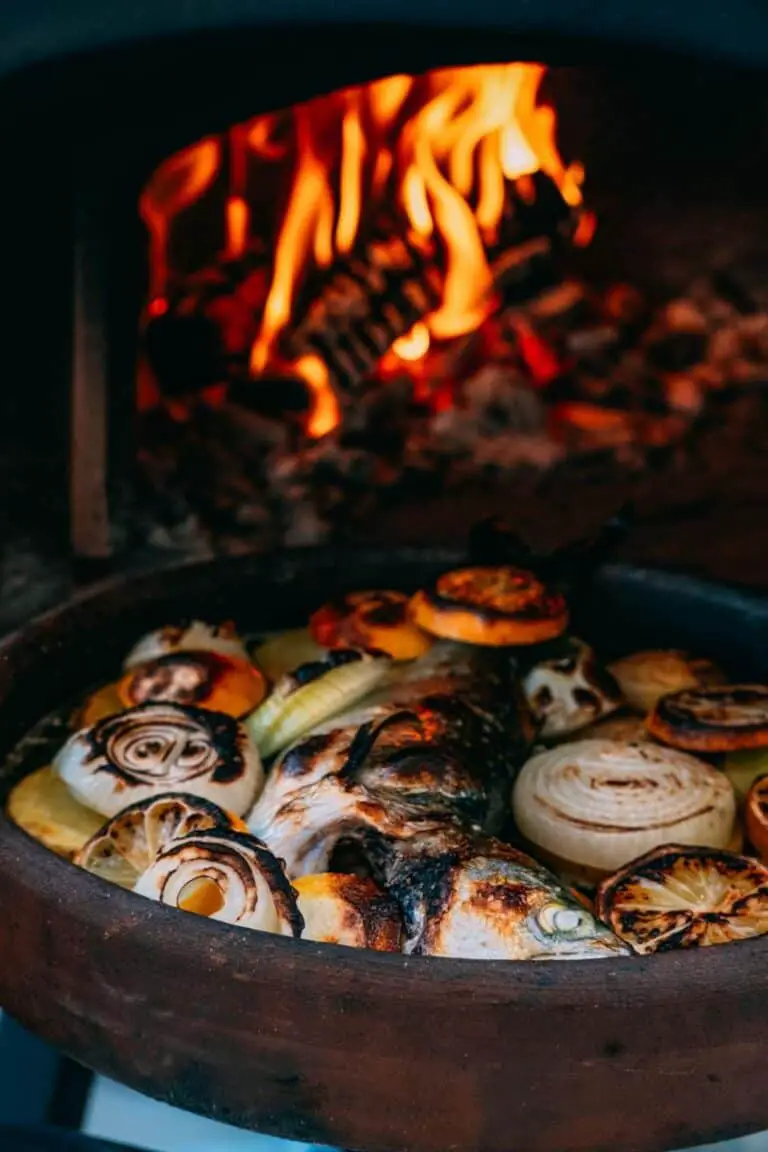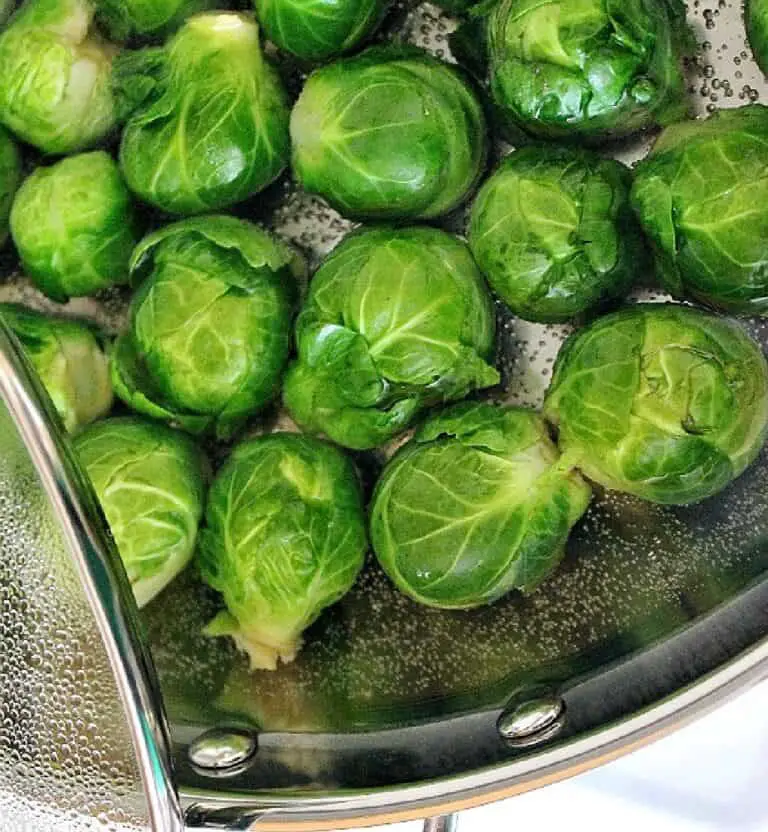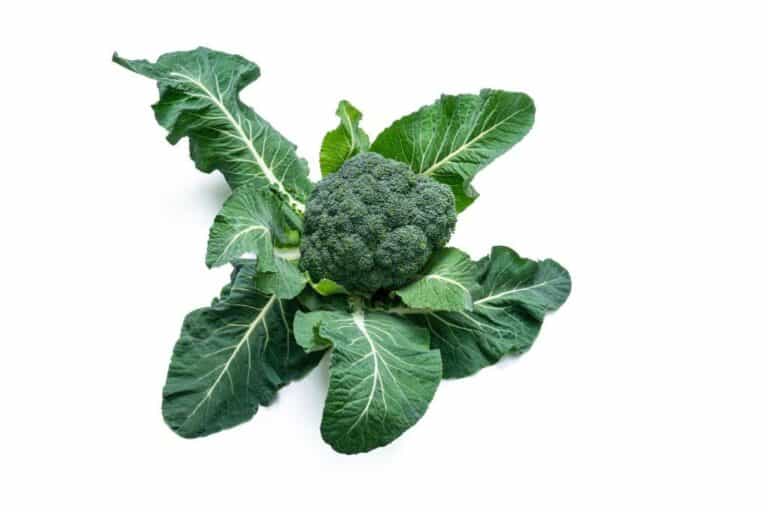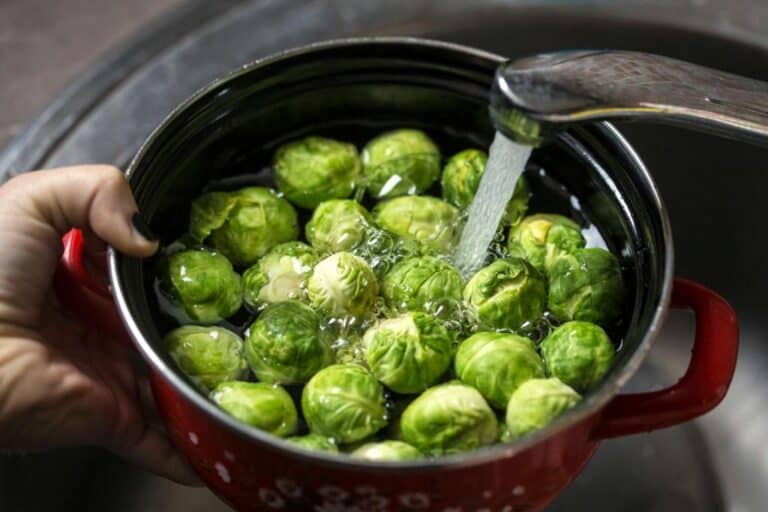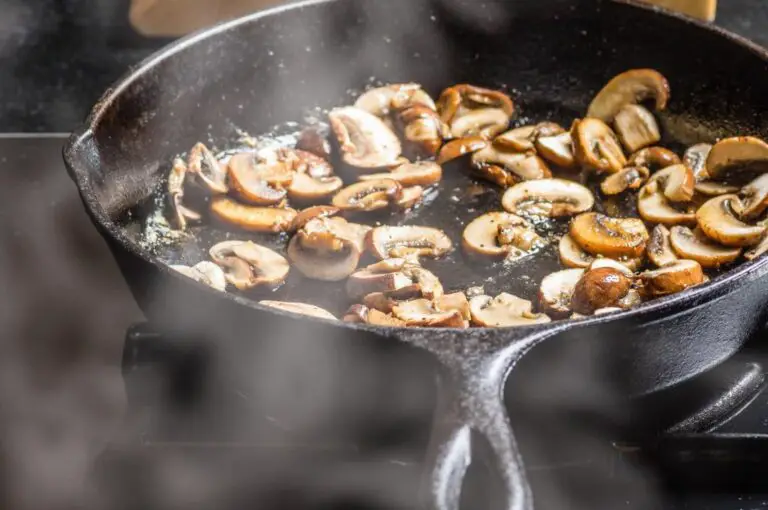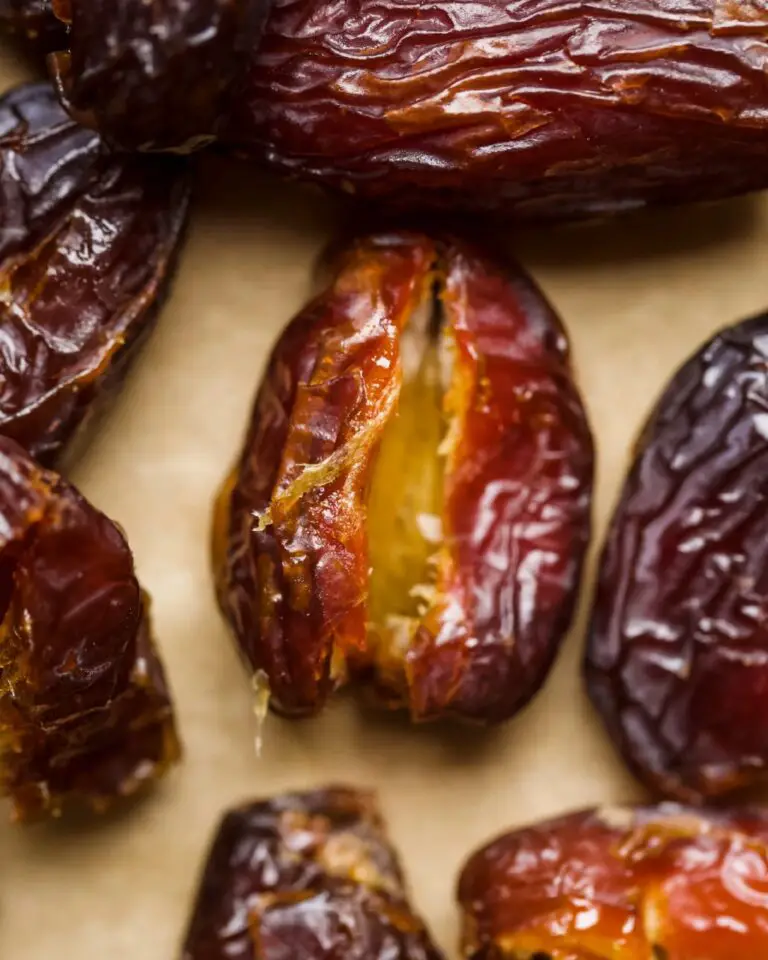Do You Wash and Rinse Brussel Sprouts Before Roasting?
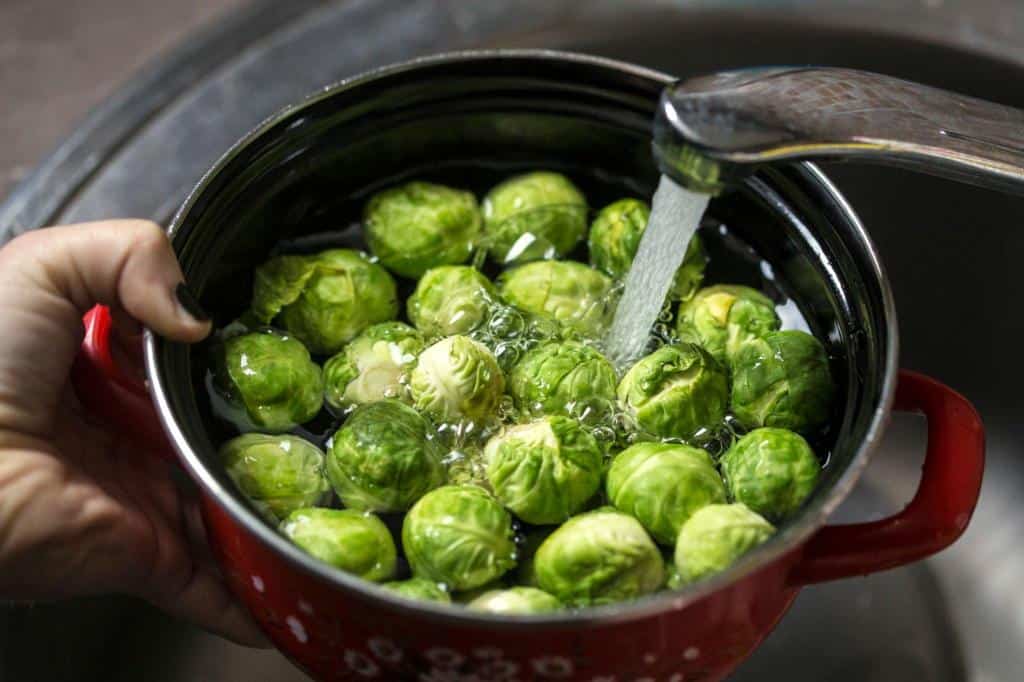
Brussels sprouts, those adorable miniature cabbages, have found their way into the hearts and plates of food enthusiasts everywhere. Their earthy flavor and delightful texture make them a popular choice for roasting. But before you embark on your culinary journey, a burning question arises: Should you give these tiny greens a good wash and rinse before they hit the oven?
Welcome to the great Brussels sprout debate! In this article, we’ll dive deep into the pros and cons of washing and rinsing these sprouts before roasting, unraveling the mysteries behind each approach.
Get ready to uncover the secrets that lie within the crispy outer layers and tender centers of Brussels sprouts. We explore the arguments for and against washing, empowering you to make an informed decision that suits your taste buds and culinary aspirations.
So, roll up your sleeves and let’s settle this veggie dilemma once and for all!
The Importance of Washing Brussels Sprouts
Washing Brussels sprouts is an essential step in preparing Brussels sprouts before roasting. There are several reasons why washing is crucial:
- Removing dirt, debris, and potential pesticides: Like any other vegetable, Brussels sprouts can accumulate dirt, debris, and pesticide residues during their journey from the farm to your kitchen. Washing them thoroughly under cold running water helps eliminate these impurities, ensuring you have clean and safe sprouts.
- Improving food safety and hygiene: Washing Brussels sprouts reduces the risk of bacterial contamination. While it may not eliminate all bacteria, it significantly reduces the chances of foodborne illnesses.
- Preventing cross-contamination: Washing Brussels sprouts helps prevent cross-contamination from any harmful bacteria that might be present on the surface. By rinsing them before cooking, you minimize the potential transfer of bacteria to other ingredients or utensils.
- Enhancing the roasting process: Clean Brussels sprouts roast more evenly and develop better caramelization. Removing any residual dirt or debris allows for more efficient heat transfer and helps achieve that desirable crispy exterior.
The Pros of Washing Brussels Sprouts
Washing Brussels sprouts before roasting offers several advantages:
- Hygiene and cleanliness: Washing Brussels sprouts ensures that any dirt or debris clinging to the outer leaves is removed, providing a cleaner and safer eating experience.
- Enhancing flavor and texture: Washing helps remove any residual dirt or bitter compounds, resulting in cleaner and more flavorful sprouts. It also contributes to a better texture by ensuring even roasting and avoiding any unwanted grittiness.
- Reducing bitterness: Some Brussels sprouts can have a slightly bitter taste, which can be attributed to compounds that accumulate on the outer leaves. Washing them helps reduce or remove Brussels sprout bitterness, leading to a more enjoyable dining experience.
- Promoting even cooking: By washing and rinsing Brussels sprouts, you ensure that they roast evenly. Removing any dirt or debris allows the heat to penetrate the sprouts uniformly, preventing uneven cooking or burning.
The Cons of Washing Brussels Sprouts
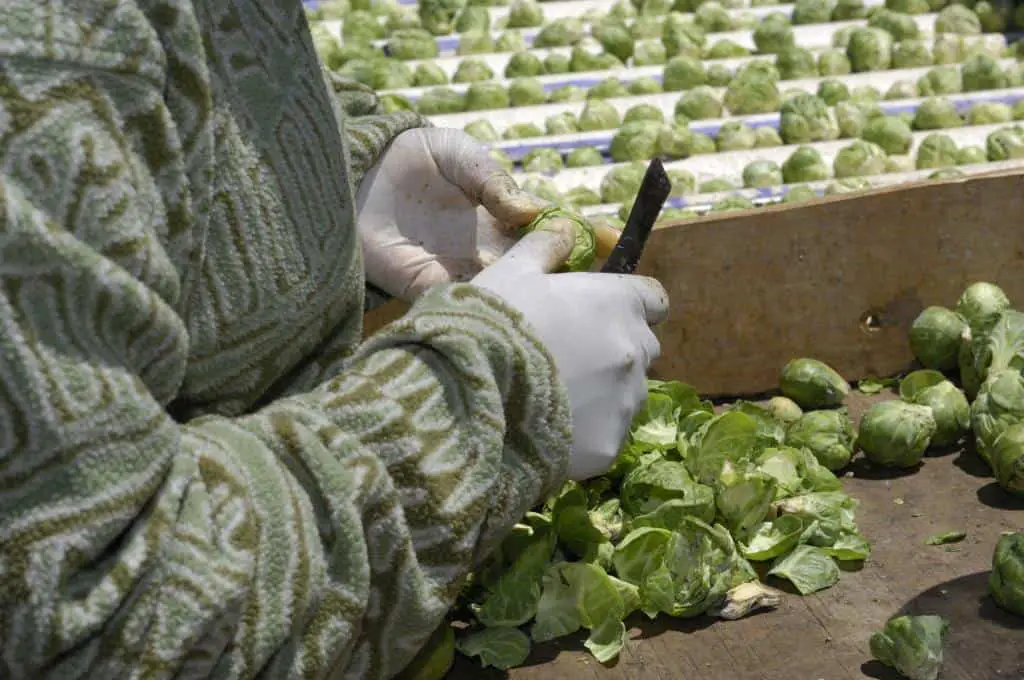
While washing Brussels sprouts before roasting has numerous benefits, there are a few potential drawbacks to consider:
- Increased moisture content: Washing can introduce moisture to the sprouts, which might impact the roasting process. Moisture can hinder browning and crispiness, resulting in a slightly different texture compared to unwashed sprouts. However, proper drying techniques can help mitigate this issue.
- Slightly longer cooking time: Due to the additional moisture from washing, you may need to increase the roasting time slightly to achieve the desired tenderness and caramelization. It’s important to monitor the sprouts closely to avoid overcooking them.
- Potential loss of water-soluble nutrients: Washing Brussels sprouts can lead to a minor loss of water-soluble nutrients, such as vitamin C. However, the impact is minimal, and the overall nutritional value of the sprouts remains high.
- Extra effort and time: Washing and rinsing each individual sprout can be a tedious and time-consuming task, particularly when dealing with a larger quantity. For those seeking a more convenient and efficient approach, skipping the washing step might be a viable option.
Techniques for Washing Brussels Sprouts
To ensure you properly wash Brussels sprouts before roasting, follow these simple steps:
- Removing outer leaves and trimming stems: Start by removing any outer leaves that appear damaged or discolored. Trim the stems slightly, if desired.
- Rinsing under cold running water: Place the sprouts in a colander or sieve and rinse them thoroughly under cold running water. Gently rub each sprout to remove any remaining dirt or debris.
- Inspecting for insects: While it’s rare to find insects on Brussels sprouts, it’s still a good practice to inspect them. Look for any signs of small bugs or eggs. If you find any, discard the affected sprouts and thoroughly wash the remaining ones.
- Drying the sprouts: After washing, it’s important to dry the Brussels sprouts to remove excess water. Use a clean kitchen towel or a salad spinner to pat them dry. This step is crucial to prevent the sprouts from becoming waterlogged during roasting.
- Patting the sprouts dry before roasting: After washing, carefully pat the sprouts dry using a clean kitchen towel or paper towels. It’s important to remove excess moisture to promote better roasting and avoid steaming the sprouts in the oven.
By following these washing techniques, you can ensure that your Brussels sprouts are clean and ready for roasting, setting the stage for a delicious and satisfying meal.
Alternative Methods for Cleaning Brussels Sprouts
If you prefer not to use traditional washing methods, there are alternative ways to clean Brussels sprouts:
- Soaking in vinegar solution: Fill a bowl with water and add a small amount of vinegar. Soak the Brussels sprouts for a few minutes, then rinse them under cold water. The vinegar helps remove impurities and can enhance the sprouts’ flavor.
- Using a vegetable brush: Gently scrub the outer leaves of the Brussels sprouts with a vegetable brush under running water. Focus on any areas that may have dirt or debris. This method allows for a targeted cleaning approach.
- Buying pre-washed Brussels sprouts: If convenience is a priority, you can opt for pre-washed Brussels sprouts available in some grocery stores. These sprouts have already undergone a cleaning process, reducing the need for additional washing.
Additional Tips for Roasting Brussels Sprouts
Regardless of whether you choose to wash or not wash your Brussels sprouts before roasting, here are some additional tips to elevate your culinary experience:
- Season creatively: Don’t be afraid to experiment with different seasonings and spices. Try adding minced garlic, balsamic glaze, or grated Parmesan cheese for a flavor boost.
- Choosing the right cooking oil: Select a high smoke-point oil, such as olive oil or avocado oil. These oils can withstand the high heat of roasting without burning or imparting an undesirable flavor to the sprouts.
- Add complementary ingredients: Enhance the flavors of your roasted Brussels sprouts by adding complementary ingredients. Consider including sliced red onions, crispy bacon, or toasted nuts like almonds or pecans.
- Roasting temperature and time: Preheat your oven to around 400°F (200°C) for a good balance between caramelization and maintaining a tender interior. Roast the sprouts for approximately 20-25 minutes, or until they are golden brown and fork-tender.
- Toss halfway through: To ensure even cooking and browning, give the sprouts a gentle toss with a spatula halfway through the roasting time. This helps to promote uniformity and prevent any sticking or burning.
- Test for doneness: Use a fork to pierce a sprout. If it offers slight resistance but is still tender, it is perfectly roasted. Avoid overcooking, as it can result in mushy sprouts with a loss of texture.
Common Mistakes to Avoid
To ensure your Brussels sprouts turn out perfectly, be mindful of these common mistakes:
- Over-washing or under-washing: While it’s essential to clean Brussels sprouts, excessive washing can strip away their natural flavors. On the other hand, insufficient washing may leave behind dirt or debris. Strike a balance by rinsing them gently under cold water.
- Overcrowding the baking sheet: Give the Brussels sprouts enough space on the baking sheet to allow for proper air circulation. Overcrowding can result in steaming rather than roasting, leading to a less desirable texture.
- Overcooking or undercooking: Pay attention to the roasting time and monitor the sprouts closely. Overcooking can make them mushy, while undercooking can leave them too firm. Adjust the roasting time based on your desired level of tenderness.
Conclusion
In the realm of roasting Brussels sprouts, the decision to wash and rinse them before cooking comes with its own set of pros and cons. Washing Brussels sprouts is crucial for removing dirt, debris, and potential pesticides, thereby improving food safety and hygiene. It also enhances flavor, reduces bitterness, and promotes even cooking.
However, it’s important to consider the potential drawbacks, such as increased moisture content, a slightly longer cooking time, and a minor loss of water-soluble nutrients.
By following the proper washing techniques outlined in this article, you can effectively prepare Brussels sprouts for roasting, ensuring clean and delicious results. Ultimately, the choice of whether to wash Brussels sprouts before roasting is a matter of personal preference. So, go ahead, experiment, and enjoy the delightful flavors that roasted Brussels sprouts bring to your table.
Do I have to wash Brussels sprouts before cooking?
While it’s not mandatory, washing Brussels sprouts is recommended to remove impurities and ensure food safety.
Can I soak Brussels sprouts in water?
Soaking Brussels sprouts is not necessary. Rinsing under cold running water is sufficient.
Does washing Brussels sprouts remove bitterness?
Yes, washing Brussels sprouts helps reduce bitterness by removing compounds that contribute to the bitter taste.
Should I remove the outer leaves of Brussels sprouts before roasting?
It’s recommended to remove any damaged or discolored outer leaves, but it’s not necessary to remove all of them.
Is it necessary to trim the stems of Brussels sprouts?
Trimming the stems slightly helps promote even cooking, but it’s optional.
Can I roast Brussels sprouts without washing them?
While it’s possible to roast Brussels sprouts without washing them, it is generally recommended to wash them to remove any dirt, debris, or potential pesticide residues for food safety and cleanliness.
How do I know if Brussels sprouts are fresh and in good condition?
Look for Brussels sprouts that have tight, compact leaves and a vibrant green color. Avoid those with signs of wilting, yellowing, or discoloration. Additionally, the stems should appear firm and not mushy.
Can I use frozen Brussels sprouts for roasting?
Yes, you can use frozen Brussels sprouts for roasting. However, keep in mind that frozen sprouts may have a slightly different texture compared to fresh ones. Thaw them before roasting, and pat them dry to remove excess moisture.
How can I make roasted Brussels sprouts more flavorful?
Besides seasoning with herbs and spices, you can experiment with additional flavorings. Consider adding a sprinkle of grated Parmesan cheese, crispy bacon bits, or toasted nuts like almonds or pecans for added texture and taste.
Can I prepare Brussels sprouts in advance and roast them later?
Yes, you can trim and clean Brussels sprouts in advance, storing them in an airtight container in the refrigerator for up to 24 hours before roasting. This can help save time when you’re ready to cook.

